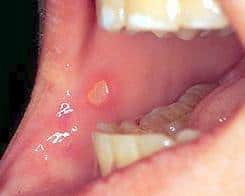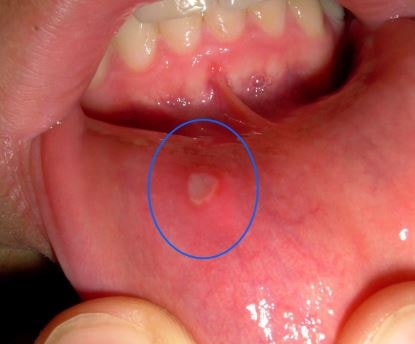Aphthous Ulcers – How to Cure

In some cases, aphthous ulcers can be cured without treatment. For minor ulcers, a mouth rinse with salt or baking soda can be used. The solution should be rinsed around the mouth and applied directly to the sore. However, major aphthous lesions may require medical treatment. In most cases, these types of lesions will heal with scarring.
The ulcers form on the mucous membrane and soft tissues in the mouth. They are typically small and round. The ulcers heal without any treatment. It is important to avoid hard foods and apply cold substances to manage pain. Some patients can also opt for topical numbing preparations. Depending on the location of the aphthous lesions, a number of treatments are available.
If you’re experiencing recurrent Aphthous Ulcers, you should consult your doctor. There’s no definitive treatment for this condition, but the pain can be managed by avoiding hard foods and applying cold substances. Using a numbing preparation can also help you manage pain and keep the ulcer from becoming worse. If you’re suffering from recurrent aphthous ulcers, however, it’s important to see a doctor.
Topical anti-inflammatory pastes can be applied to the affected area. They can be purchased over the counter and should be used two to four times daily. The topical anti-inflammatory paste should be used as directed by your doctor or pharmacist. It is recommended that you consult your doctor before using any medications. You can try one of the homeopathic remedies or alternative treatments for canker sores.
Recurrent aphthous ulcers usually begin as small yellow-red raised areas. They can be linked together and sometimes connected. Recurrent aphthous ulcer is asymptomatic, meaning there is no obvious reason why you are experiencing pain. This condition is best treated with medication. If you have multiple canker sores, you may want to see your doctor for advice on the best course of treatment.

The most effective treatment for canker sores is to avoid eating foods that cause the ulcer. This will cause the ulcer to go away on its own. In the meantime, you can apply a topical anti-inflammatory paste to reduce pain and improve the area. Some types of canker sores can be treated with oral medications. In addition to oral medications, you can try the over-the-counter anti-inflammatory medications listed on the website https://tonerin.net/.
A topical anti-inflammatory cream can be used to treat this condition. It can be bought without a prescription or prescribed by a doctor. These creams can be applied two to four times a day to reduce pain. Alternatively, you can also try a pain reliever. Once you have determined the most effective treatment option, you should follow the instructions strictly.
Symptoms of an aphthous ulcer usually start as a round yellowish spot with a red halo. The ulcer will then become punched out and will be covered with a thin, fibrous membrane. The surrounding tissue will remain healthy. While the condition is not dangerous, if it is chronic, it should be treated with medical care. Its cause is still unknown, but it is thought that an immune system problem is the primary cause of the disease.
Recurrent aphthous ulcers are not common, but they do need to be treated promptly. Most people with an aphthous ulcer can cure it with a topical anti-inflammatory mouthwash. Nevertheless, oral antibiotics are a good option for people with aphthous ulcers. Those with severe aphthous ulcers should seek medical attention.
A minor aphthous ulcers are small, and can be treated with antibiotics. They may also be caused by certain conditions, including Crohn’s disease, coeliac disease, and HIV infection. While it is important to visit your doctor to determine the root cause, aphthous ulcers can be cured with a variety of medications and procedures. While some treatments are effective for minor aphthous ulcers, others can cause permanent damage.
Aphthous ulcers are asymptomatic, but a persistent ulcer may be indicative of oral cancer. They often recur over a period of days, weeks, or months, and can be inconvenient or painful. Although the symptoms of aphthous ulcers tend to resolve on their own, recurrent aphthous ulcers can be a sign of a more serious condition.
Leave a Reply